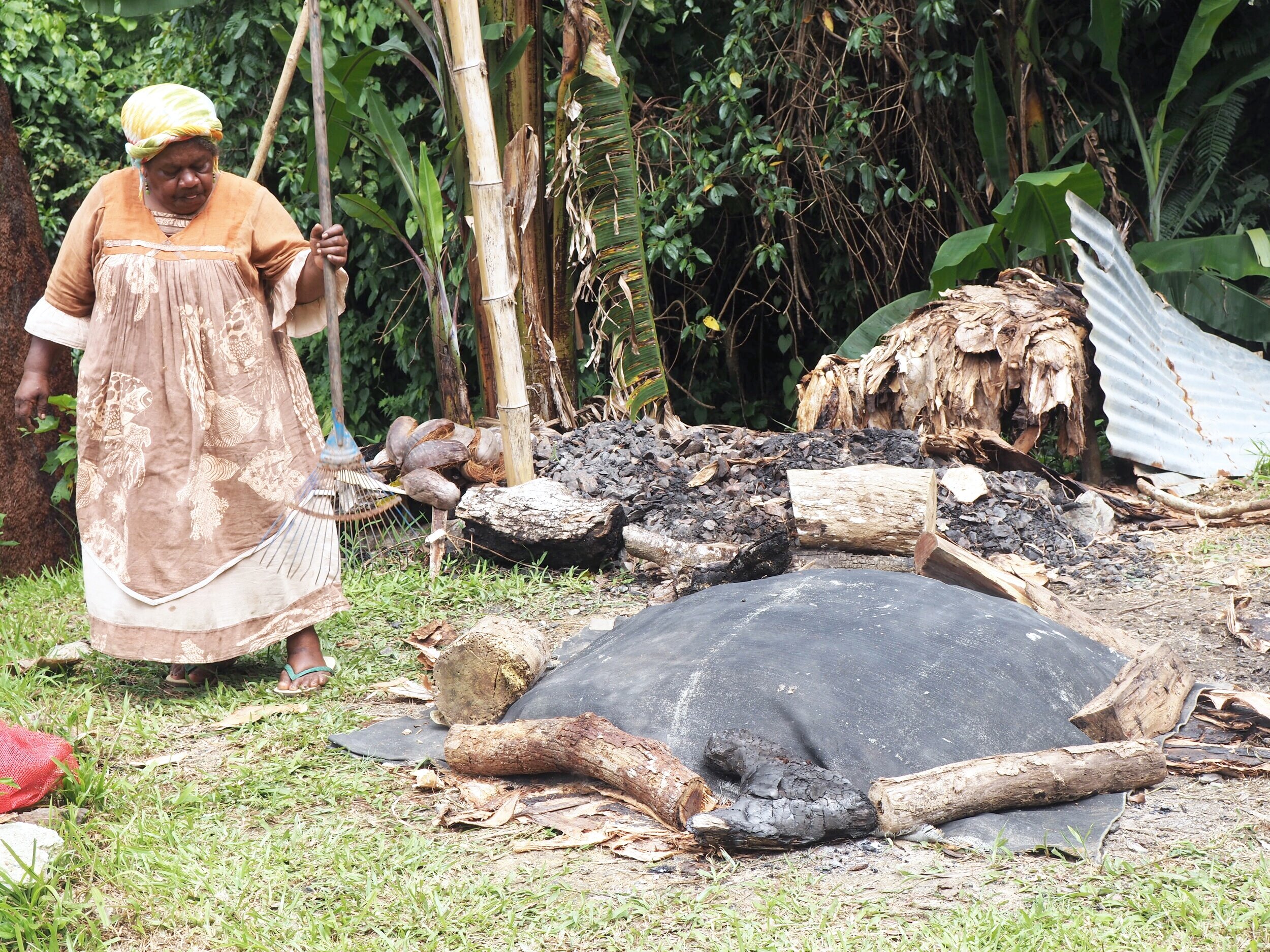Dumb Idea: Making a Film in an unknown place
It occurred to me for the first time when I returned from a mad road trip through Morocco. What the heck was I thinking (which will be the title of my memoir btw)?! Making a film with just my DP and a photographer/talent, in a country I had never been to before. For a big client no less. After I returned home - you can read about it all in a different blog post - I swore to myself to stop it with the trips into the unknown.
Woman preparing a traditional meal for a celebration in New Caledonia
© Hadassa Haack
Since then, I have done it at least five more times.
The (only) advantage is obvious: Uncertainty makes it more of an adventure and a real adventure comes across as such on screen. Maybe because filmmaking is about storytelling and storytelling is about feeling things and having a passion or at least an interest in something, I often found myself drawn to the unknown. There is just so much to explore still. In the lucky position to have creative freedom and some very open minded clients, I got to go places where I had always wanted to go.
If you are going to do the same, these are my tips to make it a success and not to have a breakdown half way through:
- make sure you get the time to do extensive research on the place. A lot of up front scouting can be done online these days. Google maps and earth, YouTube and many other sources can give you a good basis to start from to evaluate the feasibility of a project. We once put together a production in Mexico within, say, two weeks and none of us had been there before but something else had fallen through and it was an emergency. It all came together with the help of some friendly locals but it was a little hectic.
- use a local crew or at least find a local fixer or a contact who can help. If you want to be a filmmaker and haven’t started building a network of people across the world yet, start right now. Filmmaking is always a collaborative effort and aside from being able to plan and budget you will also get so much more out of a location by connecting with local residents.
- related to this: choose people for your crew that you know are unflappable travellers and adventurers and have the skillset needed for your particular production.
- ask your contact on the ground about local cultural no gos and ways they do things. This is especially important if you go anywhere poor with a luxury brand - you will be the mediator in between and you may have to educate your client on what is ok and what not. Let’s say you want to visit a tribe in a remote area, aside from obviously making sure they would appreciate visitors, what do they expect in terms of gifts, behaviour etc.
- invest in a good producer. The amount of work related to managing people, budget, travel, visas, itinerary, finding locations etc is hideous if you have to do it all yourself.
- get insurance. Enough said.
- I am all for winging it and am probably an expert at bluffing my way through customs (I’ve learned from the best) but if you’re taking a client’s money you’ll want to make sure that your equipment will not get confiscated at customs and you have to shoot a film on your old iPhone or borrow a drone from a rich kid on the beach.
- don’t make promises to whoever you’re accountable to that you can’t keep. This starts from making clear that you will not be able to bring receipts back for everything if you're in a remote part of the world and if you don’t know where you’re going exactly you have to be very loose with your treatment or storyboard.
- I found it helpful both for my anxiety and for building trust to check in with my client from abroad (I have never had a client come on a shoot) to give them updates or to get an ok for something or to just discuss options and outcomes. It keeps expectations real and takes a weight off your shoulders.
- document everything. Not only may you need it later to remember moments, names of people and places and other details from the location but it will also help you to review and learn things after you’ve wrapped and published. No matter how tired you are at the end of the day, take some notes or record voice memos on your voice. Thank me later.
- I should probably say something about permits. Get all your permits.
Even if things go completely ape shaped, every production helps you grow as a director or filmmaker and as we say in German is Lehrgeld *learning money)*
This is from the mouth of someone whose career has survived an international s**t storm.
And I did not just recommend shooting in an unknown location. But just in case you do ;)
